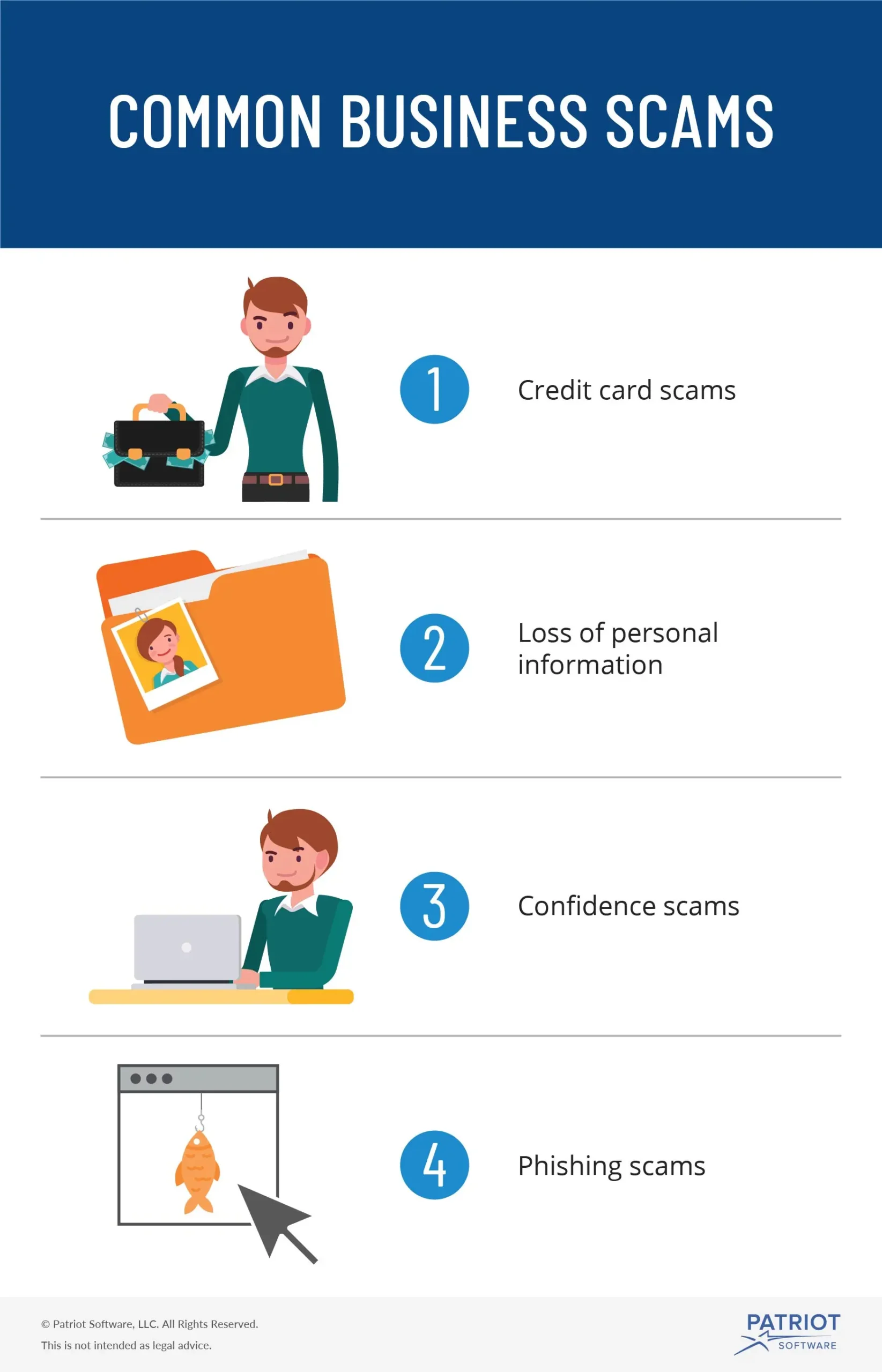Businesses of all types and sizes are vulnerable to attacks from online scammers. When it comes to being scammed, no specific industry is more at risk than others.
Regardless of their target, scammers tend to use similar techniques. The purpose is to hoodwink a business into giving away information that could be used by the scammers to steal information, money, or something valuable.
Thus, a business owner needs to be prepared by learning about possible scams they could fall victim to. Only then can you protect your business from scammers.
Most common business scams
By virtue of their sizes, small businesses are vulnerable and could fall victim to all kinds of scams. The following are some of the ways you are likely to be scammed:

1. Banking scams
As a small business owner, you need to learn some of the common banking scams and how to avoid them. This could take the form of any of the following:
Credit card scams
One of the ways you are likely to be scammed is by losing your credit card information to fraudsters. Scammers can do this by making you pay fake invoices for directory listings, office supplies or hosting services online, and stealing your credit card data.
To avoid credit card scams, you need to report the loss of credit card or financial information as soon as it happens. It is also important that you protect the data on your computer with hard-to-crack passwords and multi-factor authentication.
Loss of personal information
The fact that you fell victim to a credit card scam doesn’t necessarily mean that the scammers can access your bank account. The only way they can get your bank account sign-in credentials is through intercepting phone calls, emails, and text messages. This is what’s known as phishing and may involve emails containing links that require you to enter your personal information.
Confidence scams
In some instances, scammers will try to trick you to transfer funds directly to an account related to them. It could be anything ranging from investment opportunities, fake charities, or doubtful advertisement schemes. The scammers first ensure that they have you emotionally captivated before they request you to send money.
2. Phishing scams
Phishing scams occur due to the loss of personal information to scammers. Such information could be stolen by hackers by accessing your credit cards, passwords, and other key information through social media, email, and phone calls. Once they have this information in their hands, they may use it to sign in to your business bank account and steal your money.
To protect your business from scammers, look out for suspicious emails, especially those that require you to click links and fill in your personal information. Watch out for emails that neither contain your name nor are addressed to you. Others may have obvious grammatical errors indicating their unprofessional nature. If the phishing attempt was done through a phone call, you can try online tools to check the phone number as a solution. This will help you to know exactly who the number belongs to.
Cybersecurity principles
To protect your business from scammers, you must learn the cybersecurity principles and basics. These include planning for failure, using independent defenses, recording incidents of cybersecurity breaches, running frequent tests, assigning minimum privileges, treating users and resources separately, and balancing defense with utility.
Learning these principles will help you to break down your cybersecurity into small manageable steps. According to a survey conducted by the Insurance Information Institute, only one-third of respondent companies had cyber insurance. These numbers are relatively low given that there were more than 30,000 internet scams spotted from January to August of 2018. Therefore, creating cybersecurity training for your staff and maintaining cyber insurance should become a regular thing for your business.
The human factor
In most cases, data breaches happen due to human error. If lacking understanding of what they need to do to protect themselves, your employees may end up divulging information by visiting unsecured websites and emailing data to the wrong people.
You need to ensure that your employees are properly trained to understand the risks to which they could be exposing the business.
Come up with up-to-date policies on cybersecurity. Also, teach employees why they need to properly manage your passwords. But, a little bit of information on phishing scams and how to avoid them is important. That way, you will be able to protect your business from scammers.
Ensure your small business safety
As you can see, small businesses are prone to all types of scams. This calls for you and the employees to do everything you can to learn about possible scams and how to avoid them. Failure to prepare for possible scams will only lead to disappointment.
These views are made solely by the author.



